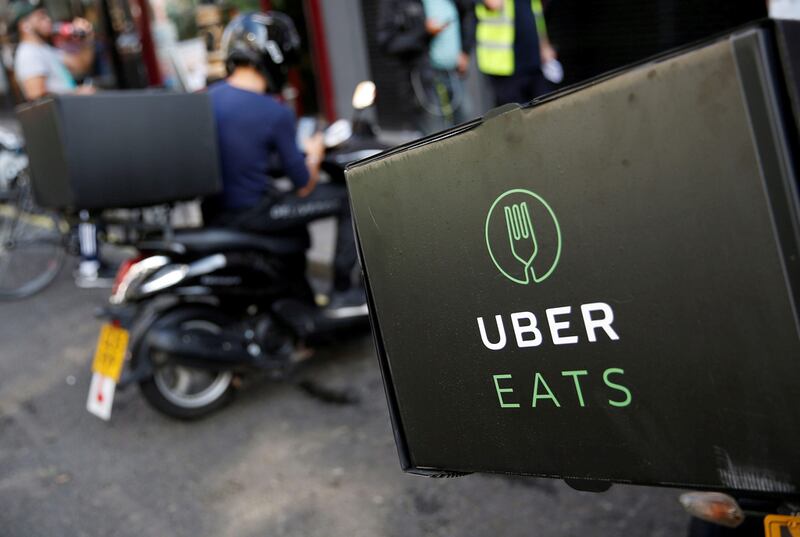Third-party logistics companies such as Deliveroo and Talabat pose a threat to the country’s food and beverage (F&B) sector, according to the chief executive of Dubai’s Freedom Pizza.
The UAE explosion in F&B delivery is placing more pressure on the beleaguered sector struggling with weak consumer sentiment and a constant supply of new concepts and geographies.
Third-party logistics companies are experiencing exponential growth offering support for those F&B businesses that do not have their own fleet of delivery riders. Uber Eats, Careem Box and Fetchr are just three of the well-funded logistics companies eager to expand and dominate the food logistics business.
“The margins in food, especially deliverable product, are notoriously slim,” said Ian Ohan, Freedom Pizza’s founder and chief executive.
He said the many logistics companies are charging up to 30 per cent of the total ticket price for their service and said that is unsustainable. “We are opening our 10th outlet in Sharjah later this year as we own our food offering, technology and logistics operations,” he said.
“We have our own proprietary technology and our own fleet of 125 delivery riders so we are insulated against the third-party providers.
“However, everything is in favour of the logistics providers rather than the F&B provider. They have access to all the data and, as they are early start-up tech companies, it is hard to compete against a company that does not focus on its bottom line, just on its expansion.”
The UAE had 16,720 F&B outlets by the end of 2016 with an expected total of 19,000 to have opened by 2020, according to Euromonitor International.
“With services such as Deliveroo, our restaurant partners are able generate a larger revenue,” said Anis Harb, the general manager of Deliveroo GCC.
“Third-party delivery services expand the restaurant’s catchment area while maintaining good service and delivery time and saving the restaurant from spending on hiring riders and transportation. The benefits, ranging from time and budget and proximity, also acknowledge one of the main problems that a start-up restaurant may face – awareness.”
While the delivery offerings have expanded customer’s choices the threat from food logistics and oversupply of F&B outlets is echoed by one industry consultant.
“I think the Government has to stop issuing F&B licences,” said Naim Maadad, the chief executive of the Dubai-based hospitality development company Gates Hospitality.
He said the overarching primary problem was the oversupply of outlets, and that which was compounded by the spread of food delivery which meant meaning F&B outlets saw fewer customers and were left behind if they did not offer deliver themselves.
“The fact is that F&B only pays in a few geographies, such as Dubai Marina, where the weight of population across one location makes it viable. I see many casualties in the next four months. How can you pay 25 per cent – 30 per cent to the delivery guys when you can only charge Dh50 for a burger?”
While many of the UAE’s newest neighbourhoods are filling their retail spaces with F&B outlets, Mr Maadad has turned down “at least” 25 locations this year as he sees many of his contemporaries in good established locations contemplating closing.
ascott@thenational.ae
Follow The National's Business section on Twitter






